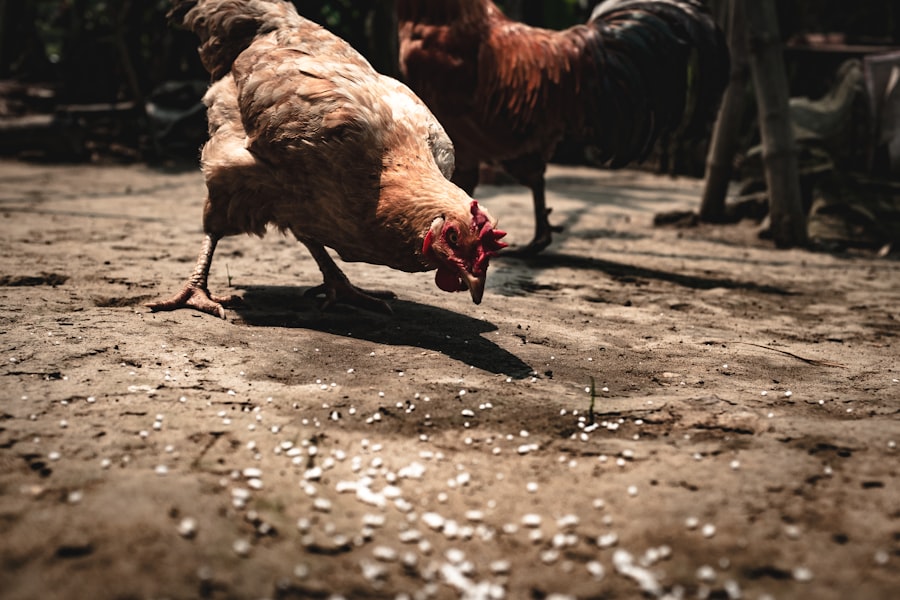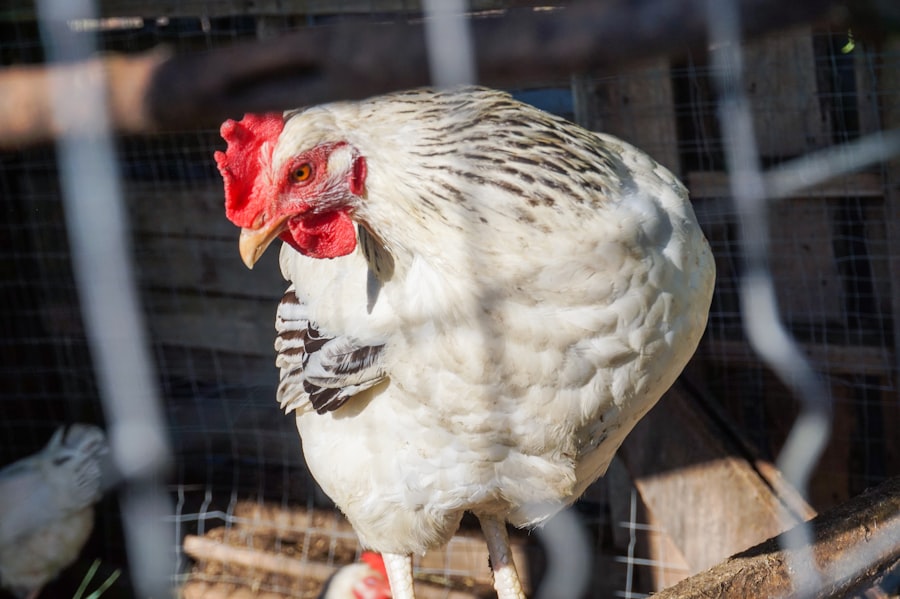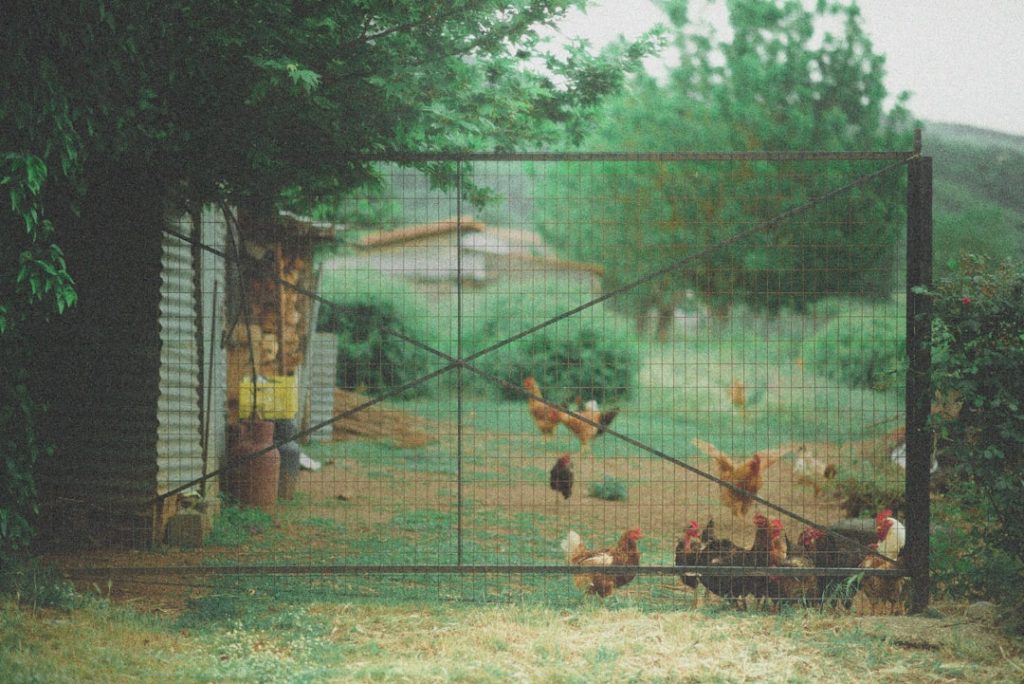Grass-fed chickens have specific requirements during winter months to maintain their health and well-being. These chickens are more vulnerable to cold weather compared to conventionally raised poultry due to their outdoor lifestyle. As temperatures decrease, grass-fed chickens need additional care and attention to survive and thrive.
Protection from harsh weather conditions, including wind, rain, and snow, is crucial for grass-fed chickens in winter. They require suitable shelter, warmth, and consistent access to food and water. Understanding and addressing these specific needs is essential for chicken owners to ensure their grass-fed flocks remain healthy throughout the colder months.
Proper winter care for grass-fed chickens involves providing adequate shelter, maintaining appropriate temperatures, and ensuring continuous access to nutrition and hydration. By meeting these requirements, owners can help their grass-fed chickens successfully navigate the challenges of winter weather.
Table of Contents
- 1 Providing Shelter and Protection from the Elements
- 2 Adjusting Feeding and Watering Practices for Winter
- 3 Ensuring Proper Ventilation and Air Quality in the Coop
- 4 Adding Insulation and Bedding for Warmth
- 5 Monitoring Health and Behavior in Cold Weather
- 6 Implementing Additional Measures for Extreme Cold Conditions
- 7 FAQs
- 7.1 What are grass fed chickens?
- 7.2 How do you keep grass fed chickens in the winter?
- 7.3 What kind of shelter do grass fed chickens need in the winter?
- 7.4 How do you ensure grass fed chickens have access to water in the winter?
- 7.5 What kind of supplemental feed do grass fed chickens need in the winter?
Key Takeaways
- Grass-fed chickens need extra care in winter to stay healthy and comfortable
- Provide shelter from wind, rain, and snow to protect chickens from the elements
- Adjust feeding and watering practices to ensure chickens have enough nutrients and water in cold weather
- Proper ventilation is crucial to maintain good air quality and prevent moisture buildup in the coop
- Add insulation and extra bedding to keep the coop warm and cozy for the chickens
- Monitor chicken health and behavior closely in cold weather to catch any issues early
- In extreme cold conditions, consider additional measures such as heat lamps or heated waterers for the chickens
Providing Shelter and Protection from the Elements
Insulating the Coop
This includes ensuring that their coop is well-insulated, free from drafts, and protected from wind, rain, and snow. Additionally, it’s essential to provide a dry and comfortable environment for the chickens to roost and nest in.
Bedding and Comfort
This can be achieved by using straw or wood shavings as bedding, which will help to keep the chickens warm and dry.
Access to a Covered Outdoor Area
In addition to providing shelter, it’s important to ensure that the chickens have access to a covered outdoor area where they can roam and forage without being exposed to harsh weather conditions. This outdoor area should be protected from wind and precipitation, and it should also provide the chickens with access to fresh air and sunlight.
By providing adequate shelter and protection from the elements, you can help your grass-fed chickens stay warm and healthy throughout the winter months.
Adjusting Feeding and Watering Practices for Winter

Feeding and watering practices must be adjusted for grass-fed chickens in the winter to ensure that they receive the nutrition and hydration they need to stay healthy. During the colder months, chickens require additional calories to maintain their body temperature and energy levels. This means that their diet should be supplemented with high-energy foods such as grains, seeds, and mealworms.
Additionally, it’s important to provide access to fresh water at all times, as chickens can become dehydrated in cold weather. In addition to adjusting their diet, it’s important to ensure that the chickens have access to food and water that is not frozen. This may require using heated waterers or regularly checking and replacing frozen water and food throughout the day.
By adjusting feeding and watering practices for winter, you can ensure that your grass-fed chickens receive the nutrition and hydration they need to stay healthy and happy during the colder months.
Ensuring Proper Ventilation and Air Quality in the Coop
Proper ventilation and air quality are essential for grass-fed chickens in winter to prevent respiratory issues and maintain a healthy environment in the coop. While it’s important to keep the coop warm, it’s equally important to ensure that there is adequate airflow to prevent moisture buildup and ammonia levels from rising. This can be achieved by providing ventilation openings that allow fresh air to enter the coop while allowing stale air to escape.
In addition to ventilation, it’s important to maintain good air quality in the coop by regularly cleaning and removing soiled bedding, droppings, and other waste materials. This will help to prevent the buildup of harmful bacteria and ammonia, which can negatively impact the health of the chickens. By ensuring proper ventilation and air quality in the coop, you can create a healthy environment for your grass-fed chickens to thrive in during the winter months.
Adding Insulation and Bedding for Warmth
Adding insulation and bedding to the coop is essential for keeping grass-fed chickens warm during the winter months. Insulation can help to retain heat inside the coop, while bedding provides a comfortable and warm surface for the chickens to roost and nest on. This can be achieved by using materials such as straw, wood shavings, or hay as bedding, which will help to insulate the coop and provide warmth for the chickens.
In addition to insulation and bedding, it’s important to ensure that the coop is well-sealed to prevent drafts and heat loss. This can be achieved by sealing any gaps or cracks in the walls, windows, and doors of the coop. By adding insulation and bedding for warmth, you can create a cozy and comfortable environment for your grass-fed chickens to stay warm during the winter months.
Monitoring Health and Behavior in Cold Weather

Observing Health and Behavior
This includes observing their activity levels, eating habits, and overall demeanor to ensure that they are healthy and thriving in colder temperatures. Additionally, it’s important to regularly check for signs of illness or injury, such as lethargy, decreased appetite, or abnormal behavior.
In addition to monitoring their health, it’s important to take proactive measures to prevent common winter-related issues such as frostbite or respiratory issues. This may include applying petroleum jelly to their combs and wattles to prevent frostbite or providing additional warmth and protection during extreme cold conditions.
Early Identification and Action
By monitoring their health and behavior in cold weather, you can identify any potential issues early on and take appropriate action to ensure that your grass-fed chickens remain healthy throughout the winter months.
Implementing Additional Measures for Extreme Cold Conditions
In extreme cold conditions, additional measures may be necessary to ensure the health and well-being of grass-fed chickens during the winter months. This may include providing supplemental heat sources such as heat lamps or heated pads to keep the coop warm, especially during periods of extreme cold or inclement weather. Additionally, it’s important to provide extra insulation and bedding to help retain heat inside the coop and keep the chickens warm.
In addition to providing additional warmth, it’s important to take steps to protect the chickens from frostbite and other cold-related issues. This may include applying petroleum jelly to their combs and wattles, providing extra protection from wind and precipitation, and ensuring that they have access to fresh water at all times. By implementing additional measures for extreme cold conditions, you can help your grass-fed chickens stay healthy and comfortable during even the harshest winter weather.
In conclusion, understanding the specific needs of grass-fed chickens in winter is essential for providing them with the care and attention they require to thrive in colder temperatures. By providing adequate shelter, adjusting feeding and watering practices, ensuring proper ventilation and air quality, adding insulation and bedding for warmth, monitoring health and behavior, and implementing additional measures for extreme cold conditions, you can help your grass-fed chickens stay healthy and happy throughout the winter months. With proper care and attention, grass-fed chickens can thrive in colder temperatures and continue to provide nutritious eggs while enjoying a comfortable and cozy environment during the winter season.
If you’re looking for tips on how to keep grass fed chickens in the winter, you may also be interested in learning about the benefits of using an A-frame chicken coop. This type of coop design can provide shelter and protection for your chickens during the colder months. Check out this article for more information on how to build and use an A-frame chicken coop to keep your grass fed chickens happy and healthy in the winter.
FAQs
What are grass fed chickens?
Grass fed chickens are chickens that are raised primarily on a diet of grass and other natural vegetation, as opposed to being fed a diet of primarily grains and other processed feed.
How do you keep grass fed chickens in the winter?
To keep grass fed chickens in the winter, it is important to provide them with a warm and dry shelter, plenty of fresh water that is not frozen, and supplemental feed to make up for the lack of grass and insects in their diet.
What kind of shelter do grass fed chickens need in the winter?
Grass fed chickens need a shelter that is well-insulated, draft-free, and dry. This can be a coop or a barn that provides protection from wind, rain, and snow.
How do you ensure grass fed chickens have access to water in the winter?
To ensure grass fed chickens have access to water in the winter, it is important to regularly check their water source to make sure it is not frozen. Using heated waterers or manually replacing frozen water with fresh water can help ensure they have access to water.
What kind of supplemental feed do grass fed chickens need in the winter?
In the winter, grass fed chickens may need supplemental feed such as grains, seeds, and mealworms to make up for the lack of grass and insects in their diet. It is important to provide a balanced diet to ensure their health and well-being.
Meet Walter, the feathered-friend fanatic of Florida! Nestled in the sunshine state, Walter struts through life with his feathered companions, clucking his way to happiness. With a coop that’s fancier than a five-star hotel, he’s the Don Juan of the chicken world. When he’s not teaching his hens to do the cha-cha, you’ll find him in a heated debate with his prized rooster, Sir Clucks-a-Lot. Walter’s poultry passion is no yolk; he’s the sunny-side-up guy you never knew you needed in your flock of friends!







